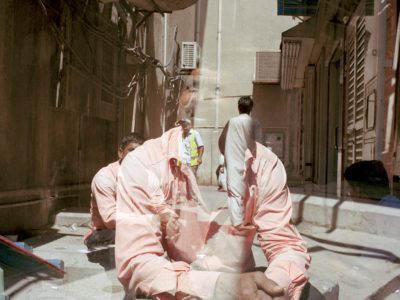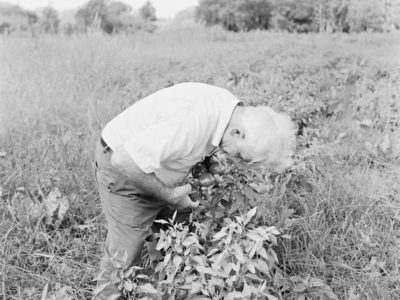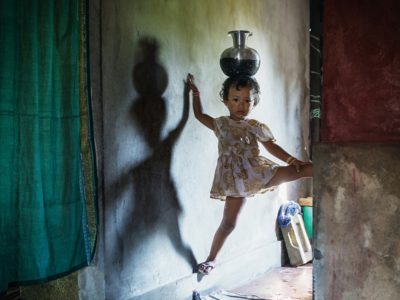Paola Paredes Photographed the Very Moment She Came Out to Her Family
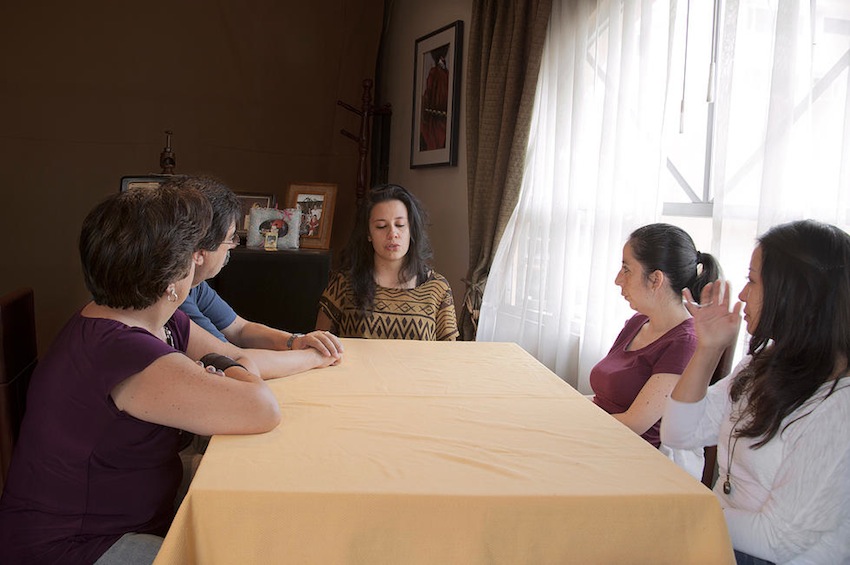
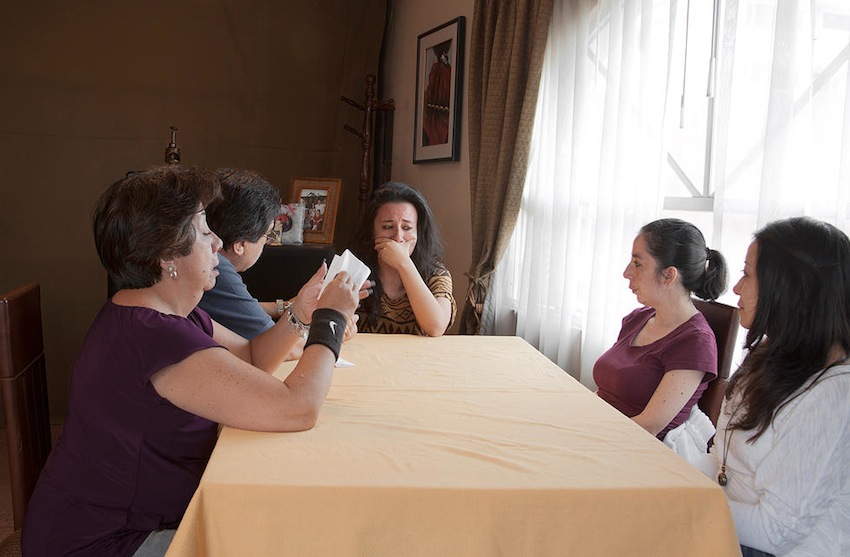
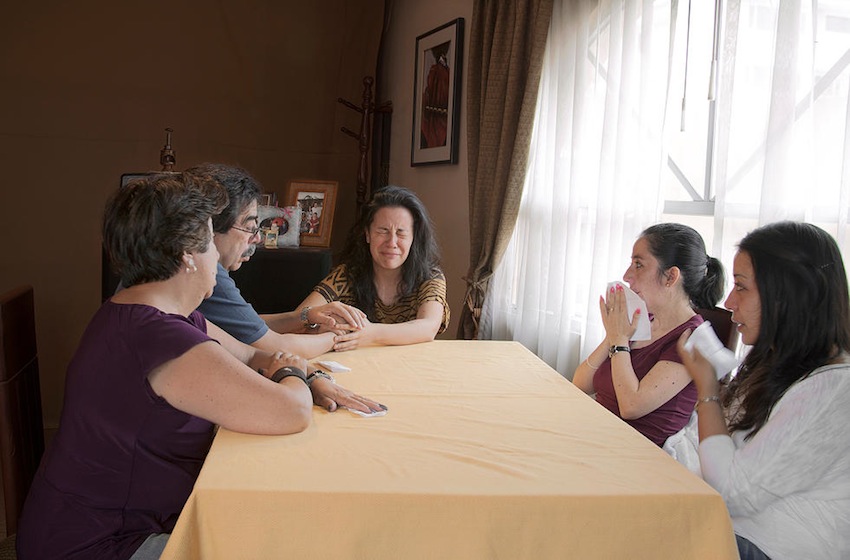
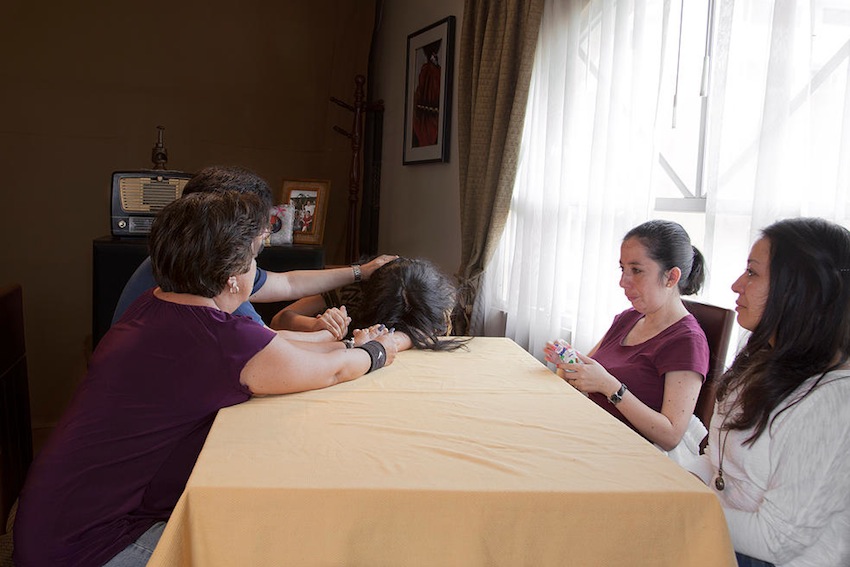
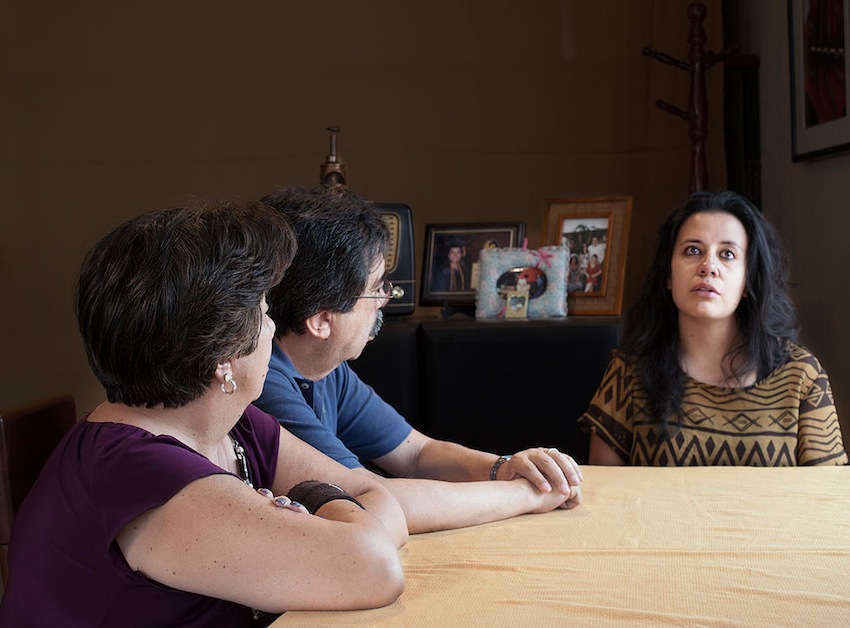
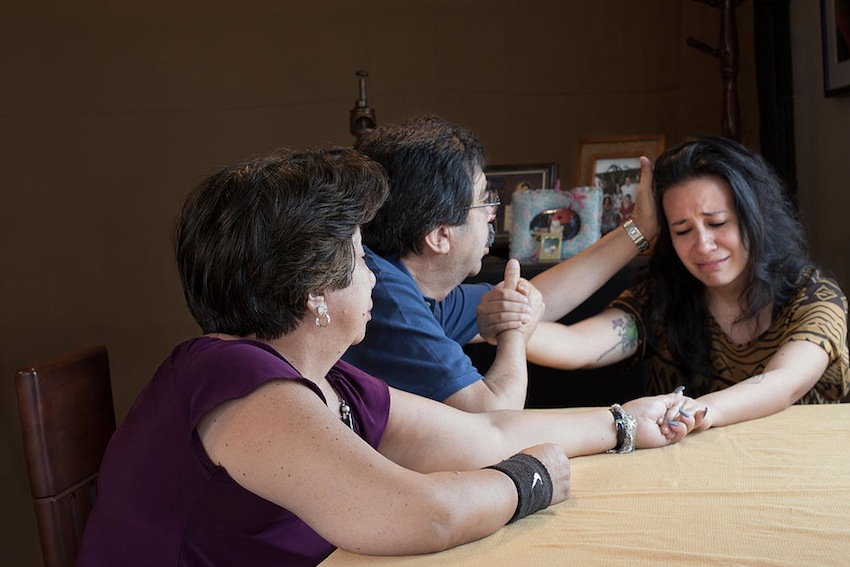
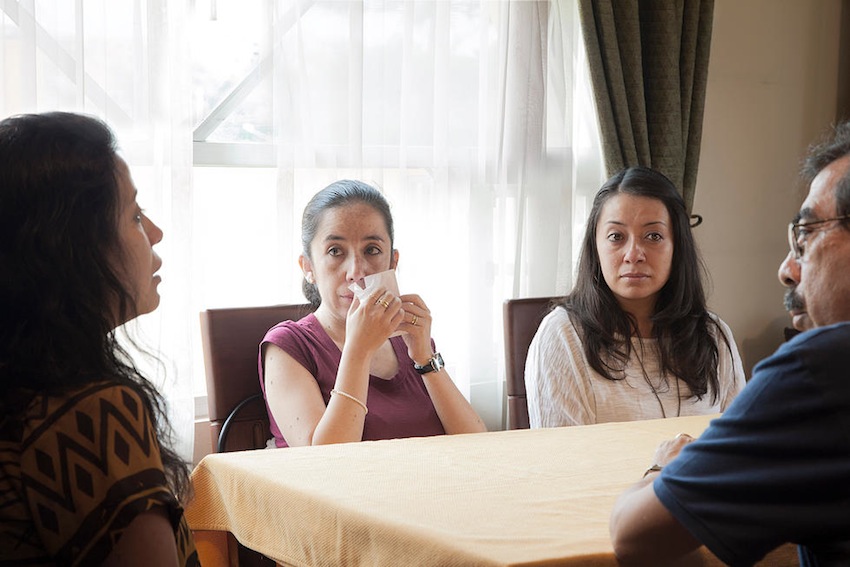
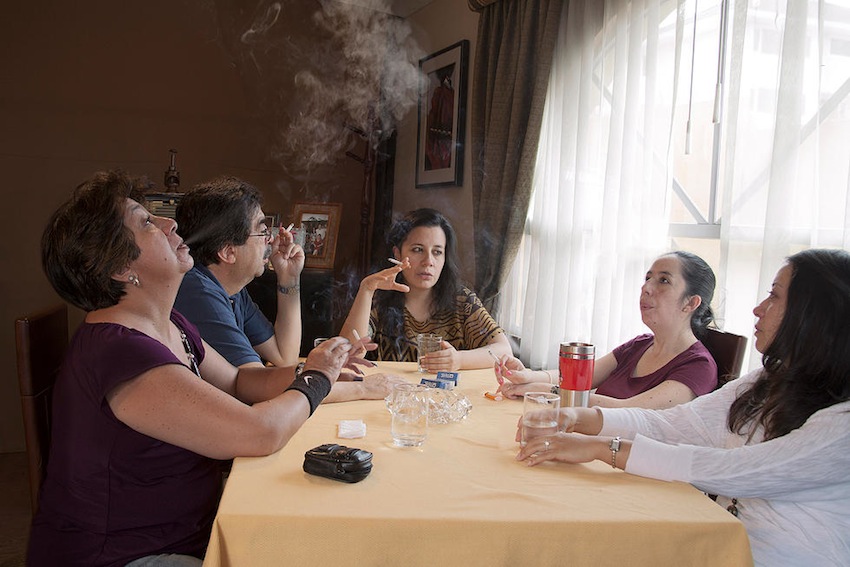
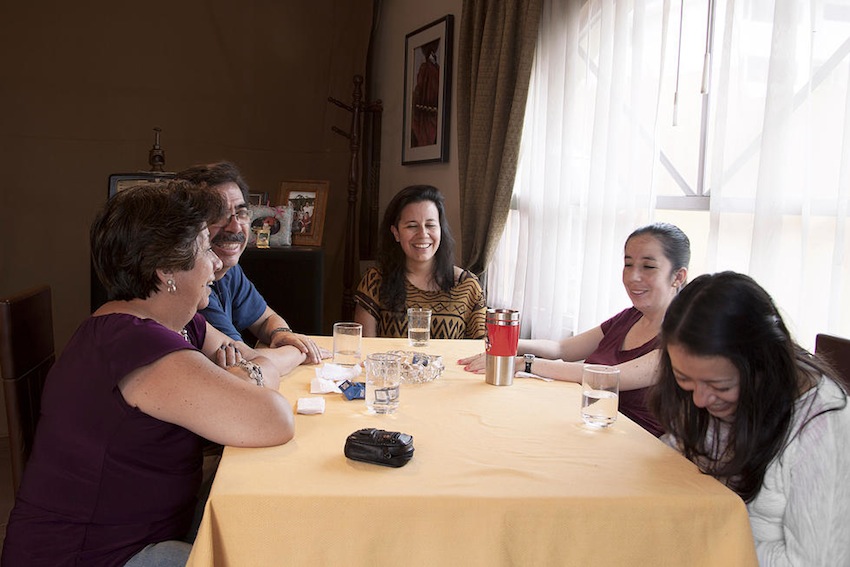
Paola Paredes is a 29 year-old Ecuadorian photographer currently based in London. For many years, Paola has kept her homosexuality hidden to her family; but she recently found the courage to sit her parents and sisters at a table to tell them the truth. But Paola did more than that: she set up three cameras around that table to document the entire conversation.
In fact, Paola says that the very idea to record her coming out in pictures was what finally made her decide to reveal the truth. The entire process is documented in Paola’s project Unveiled.
Hello Paola, thank you for this interview. Unveiled is such an extremely personal project that it’s inevitable to talk a bit about your life: what was it like to grow up as a closeted gay woman?
Thank you so much for this opportunity. It was definitely a challenge. I knew I was attracted to girls from at a very early age, I just didn’t realize the impact it would have on my life. It became something I was used to hiding. There were many years where I tortured myself into thinking there was something wrong with me, a big secret that I could never share because it was too shameful.
Your parents seem very important to you – how has your relationship with them been throughout the years you’ve been keeping your sexual identity secret?
I have always had a good/difficult relationship with each of them. When it was good, it has been good, but the complicated parts I can definitely say had to do with them not knowing about me. Since I felt I was leading a sort of secret life there was so many things I could not talk to them about, which made me bitter and resentful. Upon a big break-up with a girl I had seen for a while, I went through times where I would cry myself to sleep. My mom would get worried because she didn’t know why I was crying, she didn’t understand why I was going through so much pain. I had no desire to tell her that I had been going through a break-up with a girl. It was very frustrating for her and me as well.
Why did you decide to record on camera the moment you came out to your family?
The work of great photographers like Larry Sultan, Tina Barney, Sally Mann, etc. who have turned the camera on themselves or their families have always moved me. I knew I wanted to do something similar.
At first I thought that it would be interesting to photograph my parents’ life. It was only at a later moment that I had the idea that I could maybe document my coming out. Initially, I laughed and quickly dismissed the thought because it seemed too crazy. But as the days went by, that idea just wouldn’t leave me alone.
I had never had any intention to come out before. I was convinced I probably would have never done it. But the idea of capturing it photographs it made it all of a sudden appealing. I like storytelling, and I thought this would be an excellent opportunity to tell one. That really gave me the push I needed.
How did you create that particular sequence of images? Was everybody at the table aware that they were being photographed?
It would have been nearly impossible for them not to notice. I considered hiding the cameras at first, but then changed my mind because it would have been too disrespectful, and technically tricky. It was imperative for me to pay respect to each of my family members.
I spent a good amount of time studying the set-up of the conversation: the size of the table, the positions of the cameras, the distances between them, etc. All was planned for the set-up to be as less intrusive as possible.
A total of three cameras fired off every 5 seconds for 3 hours. When I sat down to edit the photographs, there were thousands of frames; nonetheless, I found only one in which one person – one of my sisters – looks straight at the camera. The rest of us didn’t even flinch at the cameras. That gives you an idea of how their presence was not felt that much.
Before the day you told your parents you were gay, you spent a few weeks with them and photographed them all along. Can you explain what your intent was in this sort of preparatory phase?
In the early stages of the project, I thought that it was important for my parents to feel comfortable being photographed. I couldn’t just say, ‘Hi mom, hi dad, by the way I’m gay!’ and then pull out the camera and start snapping away. I wanted their reactions to be as natural as possible. So I thought if they could get used to the cameras in the weeks before, they would have not been too disturbed by them when the moment was going to come.
It turned out to be a good idea as it gave me he chance to bond with them throughout the whole experience. One of my favorite things to photograph were the natural interactions between them. There are so many moments that I took for granted and only noticed when I started to examine them through the lens. I was able to not only photograph my parents but also observe them in a way that I never had before.
How did photography help you throughout this crucial moment in your life?
It has helped me tremendously. My parents know now and that is something I would have never imagined. It reminded of the term phototherapy: using photography as a way of cathartic release. That’s exactly what this project did for me.
It shows from the photos that your whole family was supportive from the minute you told them the truth. How have things been with them since that day?
Things have been great. I was recently in Ecuador, and I had a chance to show them the project. I was a bit nervous about it, but they all liked it. My dad’s eyes even welled up with tears as he was reliving the moment.
As far as their acceptance goes, they are going through a process of their own. The most challenging part for them is living in a place as conservative and Catholic as Ecuador, where being gay is still disapproved. I can tell that’s hard on them.
Choose your #threewordsforphotography.
Storytelling. Subjective. Spontaneous.
Keep looking...

FotoCal — Photography Awards, Grants and Open Calls Closing in June 2025

FotoCal — Photography Awards, Grants and Open Calls Closing in May 2025

FotoCal — Photography Awards, Grants and Open Calls Closing in April 2025

FotoCal — Photography Awards, Grants and Open Calls Closing in March 2025

FotoCal — Photography Awards, Grants and Open Calls Closing in February 2025

FotoCal — Photography Awards, Grants and Open Calls Closing in January 2025

FotoCal — Photography Awards, Grants and Open Calls Closing in December 2024

